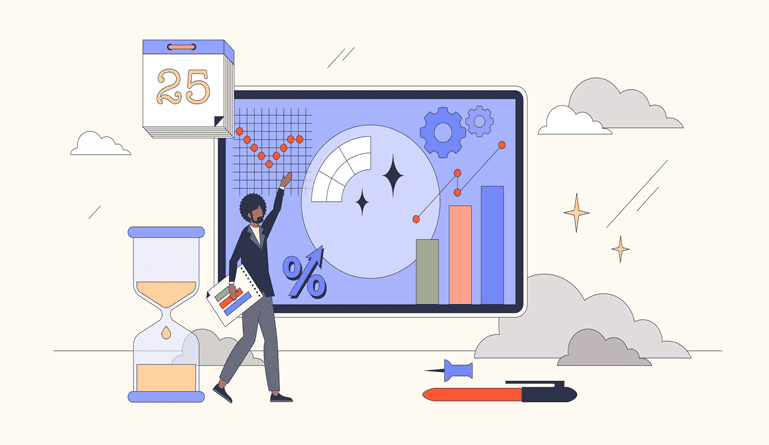Marketing automation is an effective way to reach more people in less time. Growing your brand awareness and marketing outreach through automation is a great way to organize your marketing campaigns and use throughout your marketing strategy.
What is marketing automation?
HubSpot, a leader in marketing automation technology and strategy, defines marketing automation as, “marketing automation is software and tactics that allow companies to…nurture prospects with highly personalized, useful content that helps convert prospects to customers and turn customers into delighted customers.” Marketing automation has become an important part of content marketing and customer outreach.
Marketing automation steps usually include setting marketing goals for your automated content, using the correct automation tools, seeing what content has been developed and deciding what needs to be added, content promotion, and auditing content tests to see what content performed.
How to use marketing automation to benefit your business
So how does automation turn into business growth? Primarily through engaging with customers or would-be customers in a meaningful way, leading to more conversions and greater customer loyalty. Instead of having to manually create content for groups of customers and target them, automation handles it automatically by taking the relevant content and sharing it with relevant customer segments.
1. Lead nurturing
Sales cycle times vary – for B2B customers, the sales cycle can be years. That’s why it’s important to incorporate lead nurturing through marketing automation in your marketing efforts. It’s not enough to run a marketing campaign of TV commercials and digital banners and then assume your customers will understand that your brand can meet their need. These efforts will grow awareness, but won’t help convince anyone that your brand is the right product or service for them. Marketing automation works to help get customers more on board with your business as their solution. Lead nurturing is often done through email and allows businesses to tailor their content distribution to businesses at a certain place in their buying journey. Emails would include materials like an introductory video, testimonials of other satisfied customers, tutorials, Q&A, and any other content sent out automatically, all to help potential customers understand why they should consider you as their solution.
2. Social media scheduling
Social media continues to be an important marketing platform. Scheduling social content ahead of time ensures that your engagement doesn’t dip – you provide a consistent stream of relevant content that posts automatically. Social content platforms like Spout Social and Hootsuite help businesses to manage the scheduling and posting of content. Not only does this help to ensure consistent messaging to followers and potential customers, but it also makes social strategy a less labor-intensive effort, freeing up marketing time for other endeavors.
3. Customer onboarding
Automation isn’t just for convincing leads to become customers but helps to grow your business through customer loyalty as well. When a customer purchases from you for the first time, you can introduce them to your brand and their new product, service, or subscription. This kind of welcoming onboarding material sent automatically to new customers can not only help them have a better experience using your product for the first time, but it can also reinforce your brand as the right choice for them.
Marketing automation can have a significant impact on your business. Most modern businesses use some form of marketing automation and often scale their efforts as they successfully drive revenue. The most important factors for any business starting or growing their marketing automation, however, are finding the right content to automate and the right automation platform to use. Once that’s decided, it’s easier to automate marketing approaches for your social media, email marketing, content marketing, and more, helping you convert and keep more customers.





